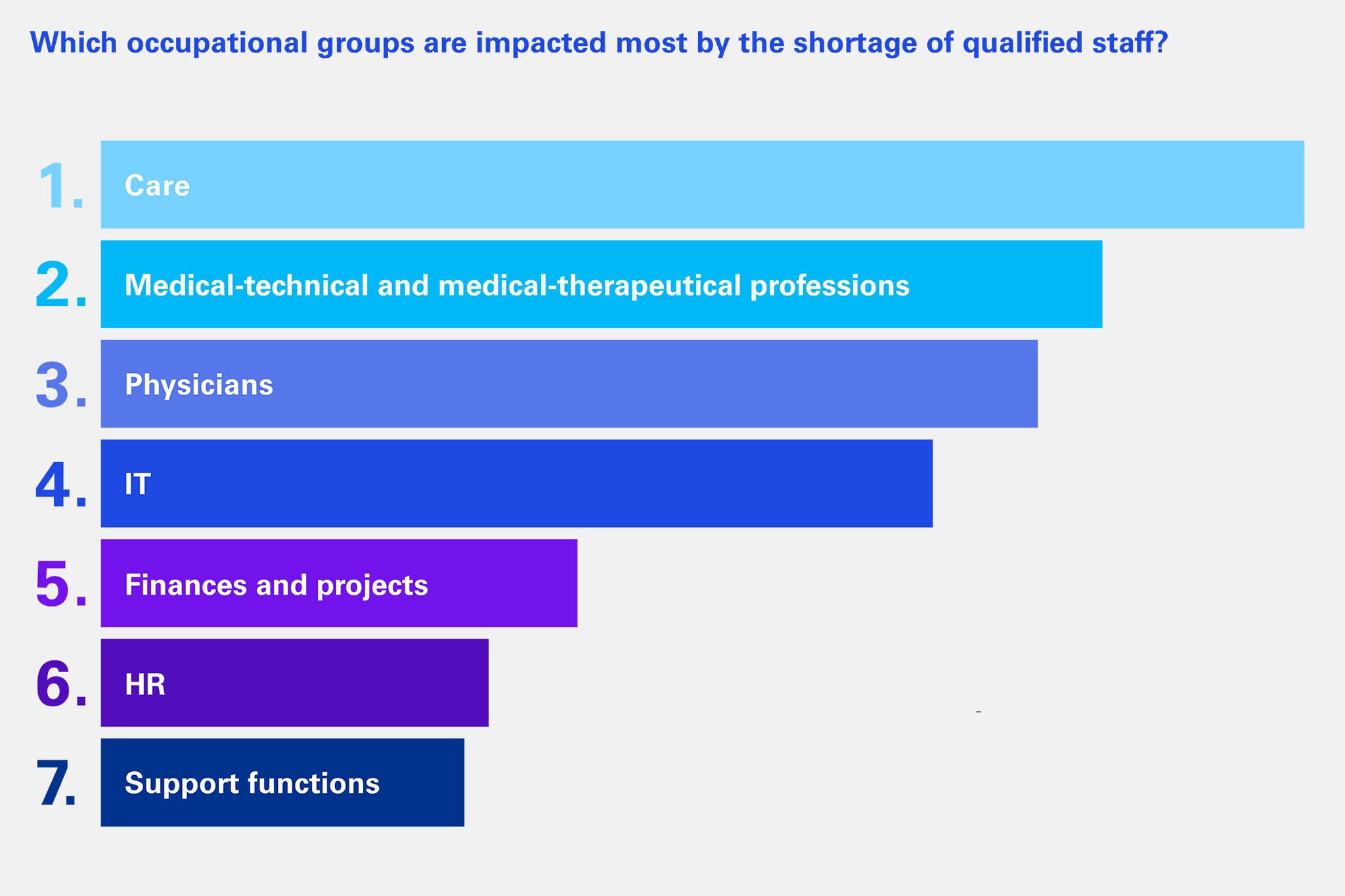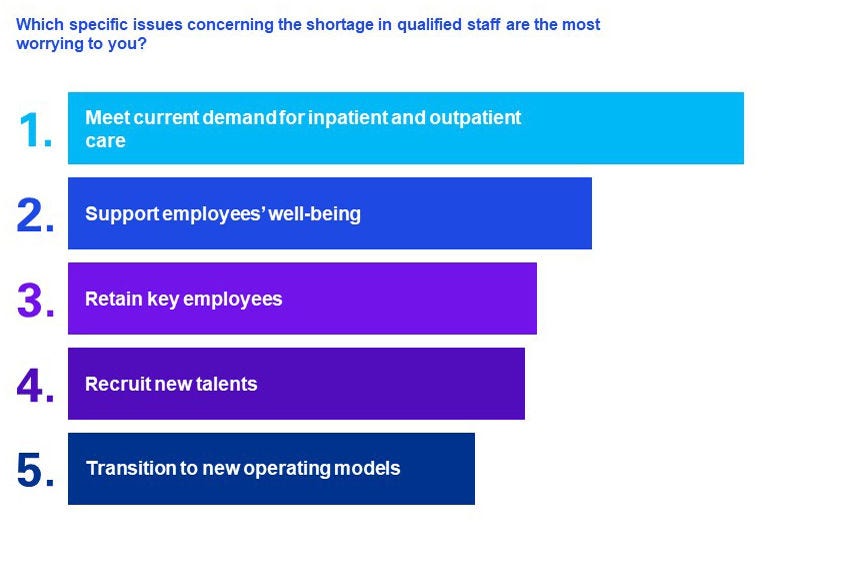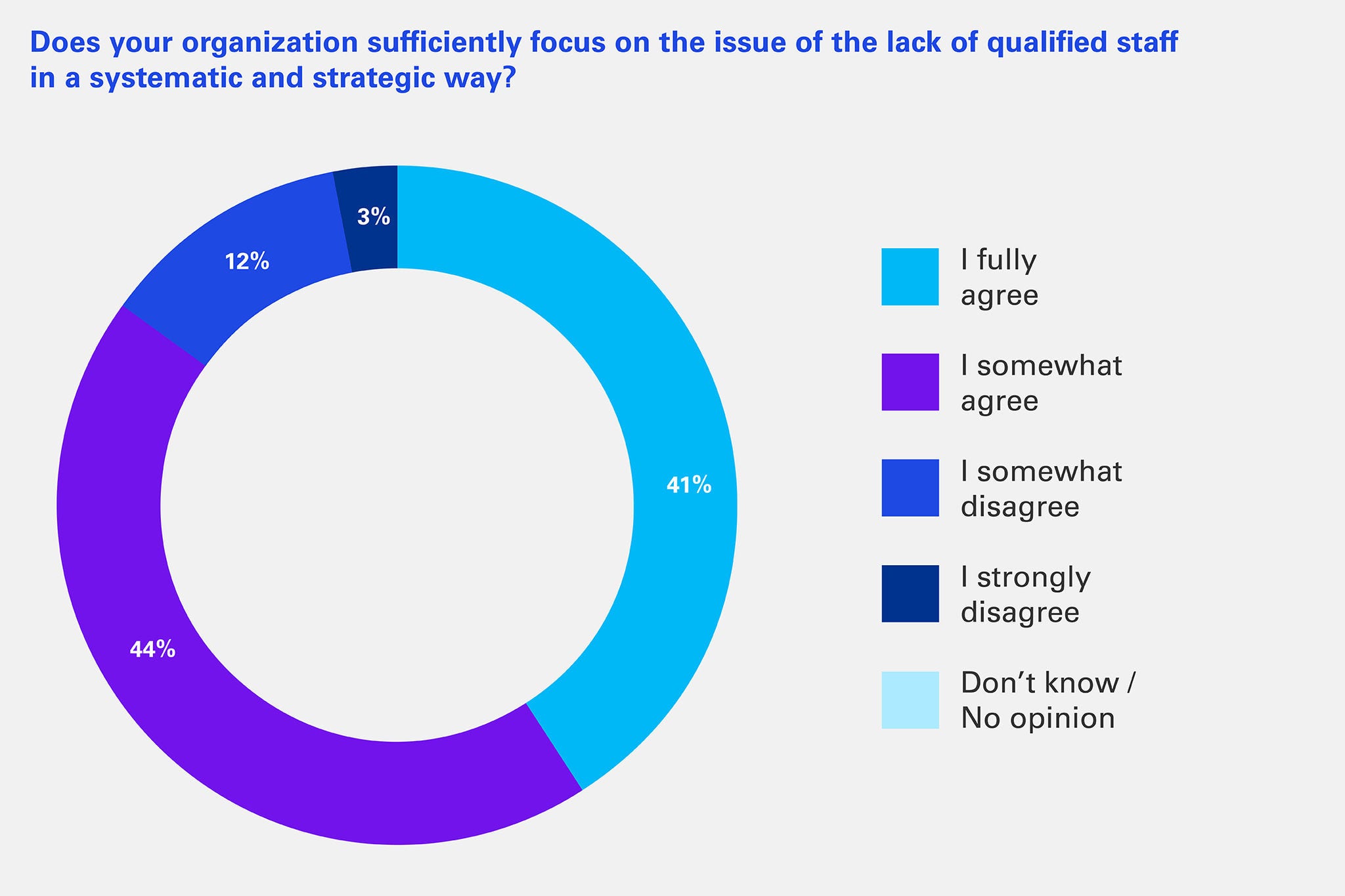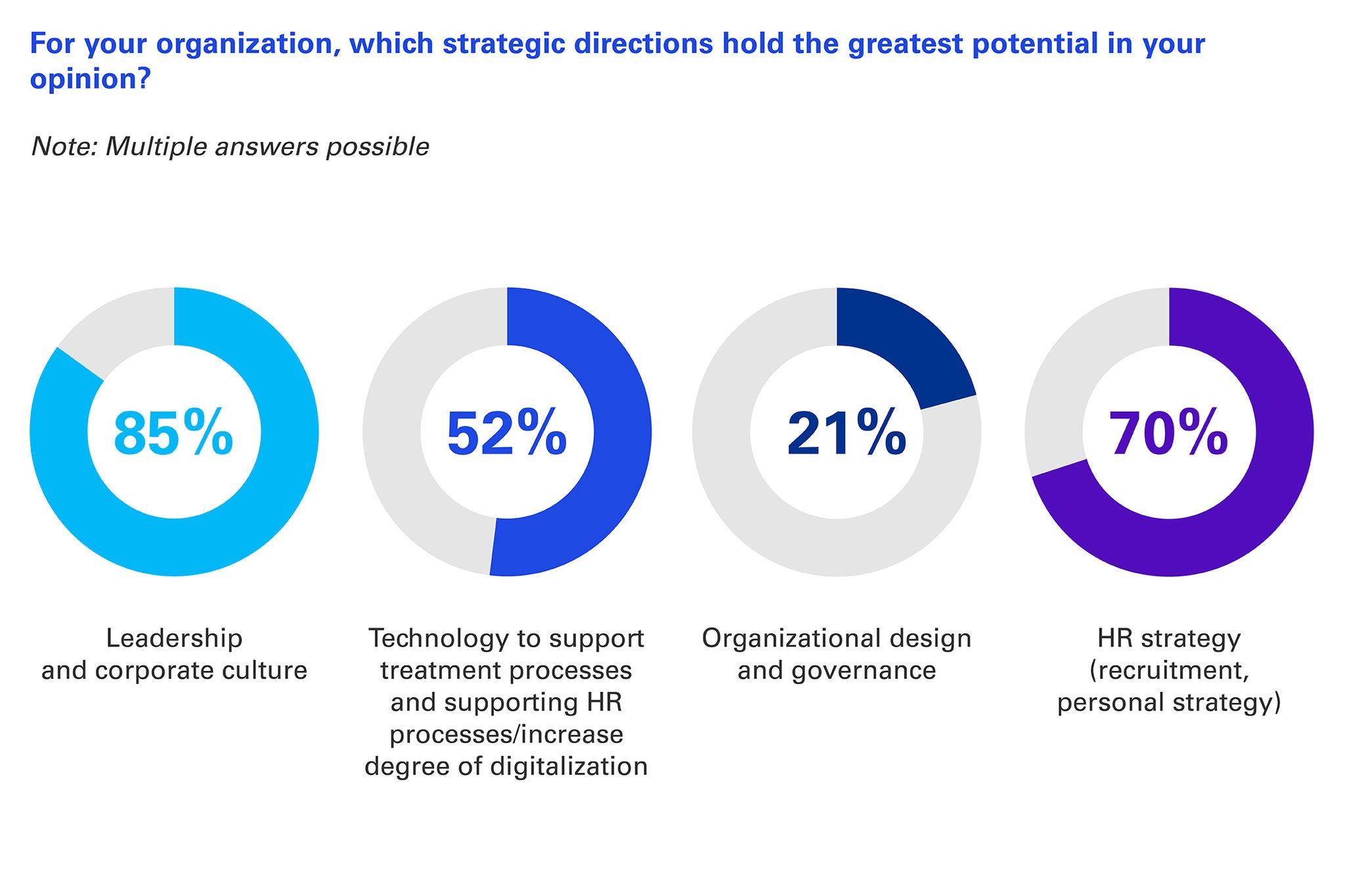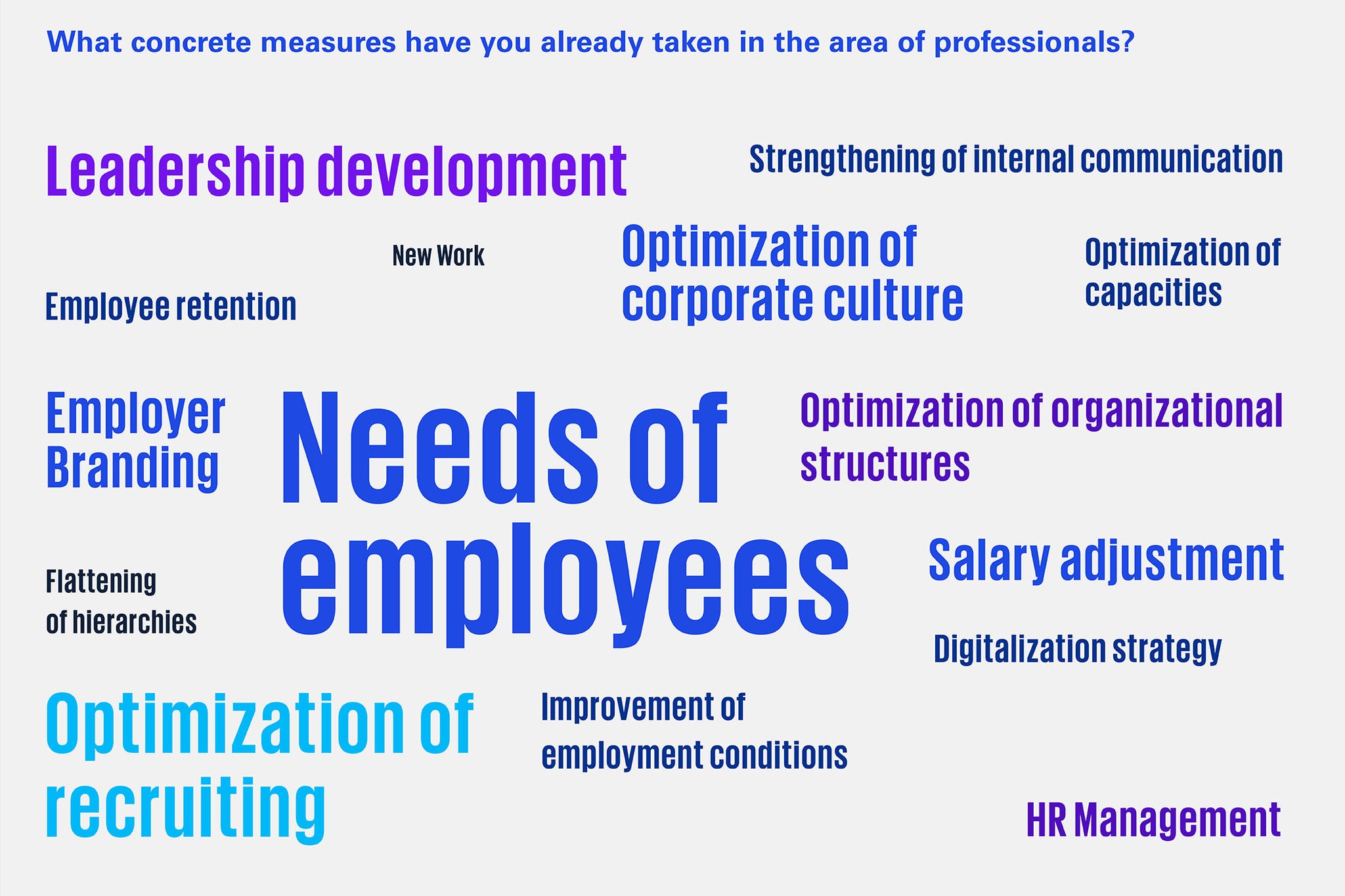There is probably not a single healthcare organization that does not struggle with how to attract skilled personnel. This is confirmed by our recent survey among CEOs of healthcare providers in Switzerland.
Those surveyed deem governance and corporate culture to be the topics with the highest potential. Yet, many initiatives today still aim at optimizing recruiting.
Healthcare is still very much a people-driven business – people serving people, even though the use of technology is steadily gaining ground.
From physicians and nurses to medical technicians and therapists who provide services directly to patients on a daily basis, to IT professionals, project leaders and managers, the rising demand for healthcare services is outpacing the availability of skilled professionals, thus increasing the strain on healthcare systems both in a national and international context.


